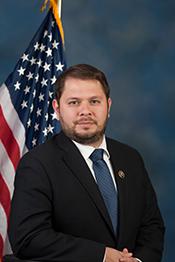S. 2163: Border Patrol Recruitment Enhancement Act
This bill, known as the Border Patrol Recruitment Enhancement Act, proposes changes to the hiring practices for U.S. Customs and Border Protection (CBP) by amending the existing Anti-Border Corruption Act of 2010. Its key elements include the following:
1. Waiving Polygraph Examination Requirement
The bill allows for the waiver of the polygraph (lie detector) examination requirement for specific individuals seeking to be employed by the CBP. This waiver applies to:- Current law enforcement officers from state or local agencies with at least three years of service.
- Current federal law enforcement officers with the same duration of service.
- Members of the Armed Forces or veterans who have served for three years and received an honorable discharge.
2. Conditions for Waiver Authority
The waiver authority granted under this bill will cease five years after its enactment. However, individuals receiving a waiver must still meet other employment suitability requirements and undergo background investigations for roles involving national security.3. Reporting Requirements
The CBP must submit annual reports to Congress for five years following the enactment of this bill. These reports will detail:- The number of waivers granted and denied.
- The hiring outcomes of those who received waivers.
- Instances where a polygraph was administered post-waiver.
- Impact assessments of the waiver program.
- Any disciplinary actions against new hires under the waiver.
4. GAO Review
The bill mandates that the Government Accountability Office (GAO) review the hiring records of individuals who received waivers, comparing disciplinary actions to those who completed the polygraph examination. This review will occur five years after the bill’s enactment and every five years thereafter for ten years.5. Definitions
The bill clarifies definitions related to criminal offenses, military offenses, and the roles of federal law enforcement officers and veterans, ensuring clarity regarding eligibility and qualifications for the positions in question.6. Other Provisions
The bill emphasizes that while polygraph examinations can be waived, the CBP has the authority to request a polygraph if new information arises during the background check process that necessitates further verification of an applicant's suitability.Conclusion
Overall, this legislation seeks to enhance the recruitment of law enforcement personnel into the U.S. Customs and Border Protection by making it easier for qualified professionals from law enforcement and military backgrounds to gain employment without the previous requirement of passing a polygraph examination.Relevant Companies
None found.This is an AI-generated summary of the bill text. There may be mistakes.
Show More
Sponsors
1 sponsor
Actions
2 actions
| Date | Action |
|---|---|
| Jun. 25, 2025 | Introduced in Senate |
| Jun. 25, 2025 | Read twice and referred to the Committee on Homeland Security and Governmental Affairs. |
Corporate Lobbying
0 companies lobbying
None found.
* Note that there can be significant delays in lobbying disclosures, and our data may be incomplete.
Potentially Relevant Congressional Stock Trades
No relevant congressional stock trades found.
